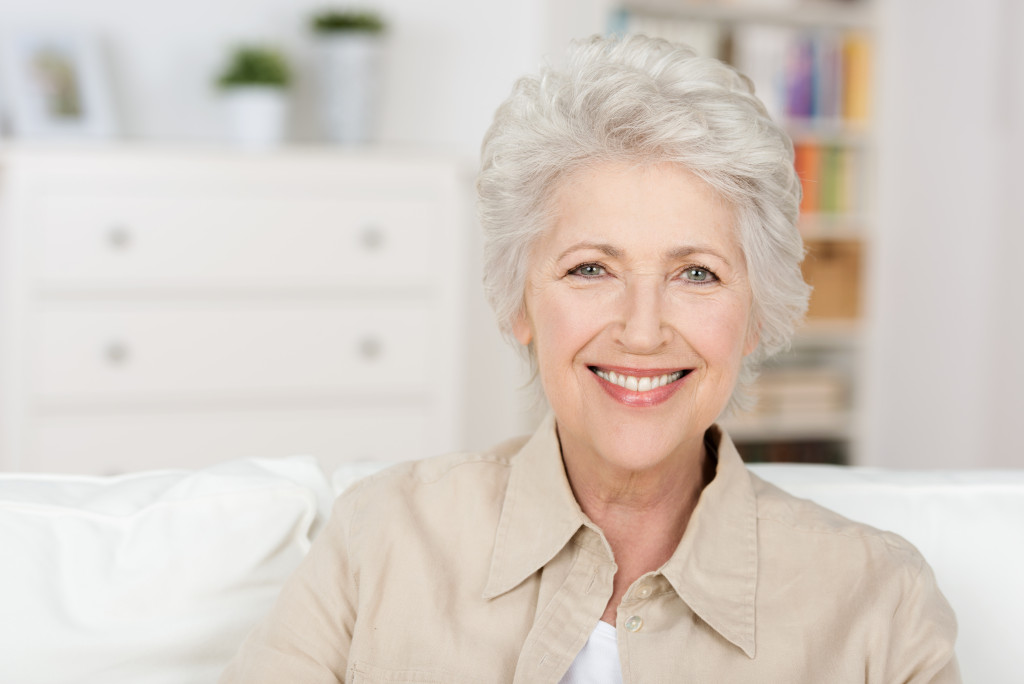- Socializing and engaging in meaningful activities are crucial for senior women’s physical and mental health.
- Regular preventive care, routine screenings, and mental health support should be prioritized to reduce the risk of chronic conditions or mental illnesses.
- Home health aides can help manage daily activities while providing companionship.
- Despite living alone, retired women should not give up on having fun! Pursue hobbies, stay connected with family/friends, and explore new experiences.
Retired women living alone must ensure that their health is a top priority. As the female population ages, it’s becoming increasingly important to understand the unique challenges that older women face. Getting regular and preventive medical care can help detect medical conditions early, before they become more serious, and lead to better long-term health outcomes.
Statistics from the Centers for Disease Control (CDC) suggest that chronic diseases such as heart disease, diabetes, and cancer are some of the most common causes of death among women over 65. Heart disease alone accounts for 20 percent of deaths in this age group. It’s also important to note that older adults are more likely to suffer from multiple chronic conditions—multimorbidity—which can further complicate diagnosis and treatment.
In addition, studies have shown a link between mental and physical health in later life. Physical health issues can exacerbate mental illnesses like depression and anxiety. Conversely, older adults with poor physical health may be at risk for developing mental illness or worsening their symptoms over time.
Of course, retired women might also face unique social challenges. Many women in their senior years live alone, without the constant companionship of a partner or friend. Here are a few tips to help retired women living alone stay healthy and active:
Engage with the Local Senior Community

Retired women must avoid social isolation to help maintain their mental and physical health. Studies have found that socialization and engagement in meaningful activities can reduce stress, boost self-esteem, and improve cognitive functioning. Social interaction can also help lower the risk of developing or worsening mental illnesses like depression and anxiety. Additionally, it can provide a sense of purpose and belonging—it’s not uncommon for older adults to feel like they don’t fit in with younger generations, leading to feelings of loneliness and a lack of self-worth.
Joining a senior community is an excellent way for retired women to combat these issues. It is also an opportunity to meet new people in similar life stages with shared interests or experiences, providing a sense of camaraderie that may be otherwise unavailable. Senior centers typically offer classes and activities like yoga, dance, art, cooking demonstrations, lectures, and more explicitly tailored for older adults.
Local homeschooling organizations often coordinate events for seniors as well. Participating in group activities helps stimulate cognitive functioning by challenging the mind while providing valuable learning opportunities and age-appropriate exercise. This type of active engagement in the community can be incredibly useful in helping retired women living alone stay healthy while feeling connected to peers of all ages.
Getting Medical Assistance

Women over 65 often face unique challenges with their health due to aging and increasing multimorbidity. It is essential for retired women living alone to prioritize their medical health to reduce the risk of developing chronic conditions or worsening mental illnesses. Fortunately, various home care services are available to help ensure that older women receive the necessary medical attention.
Preventive Care
Preventive care is any service that helps prevent or detect illness before it becomes more serious. Retired women should consider getting regular physical exams and immunizations to guard against diseases like influenza, pneumonia, and shingles. Additionally, preventive screenings can identify problems early on when they are still highly treatable and less costly – such as high cholesterol levels or early signs of diabetes or cancer. A primary care provider can work with a woman’s specific needs and lifestyle to develop an individualized healthcare plan that includes preventive measures like these.
Routine Screenings
Routine screenings are tests that help detect diseases before symptoms appear or when they are just beginning so that treatment options can be considered right away. Examples of regular screenings include mammograms for breast cancer detection, colonoscopies for colorectal cancer screening, and PSA tests for prostate cancer in men. Women should consult with their doctor about which screenings make sense based on age, family history, lifestyle factors (such as smoking), and other medical conditions they may have.
Mental Health Support
Mental health is just as important as physical health in later life, so retired women must also pay special attention to this aspect of their well-being. Older adults who feel lonely or isolated from friends or family are particularly vulnerable; depression is one of the most common mental illnesses among this population group and can lead to more serious medical issues if left untreated.
Home Health Aides
Finally, home health aides provide an invaluable resource by helping retired women living alone manage their day-to-day activities without leaving the house (or worrying about family members). Home health aides can assist with basic tasks such as meal preparation and transportation to appointments; personal hygiene like bathing and dressing; light housekeeping like laundry; medication reminders; grooming; mobility assistance; safety checks; companionship; errands outside the home like grocery shopping; pet care—and much more!
Continue Having Fun
It’s essential to remember that living alone as a retired woman doesn’t mean you can’t enjoy life. Take time for yourself and pursue activities that make you happy—from leisurely hobbies such as reading, gardening, or painting to more ambitious projects like starting a business or taking up a new sport. It’s also essential to stay connected with family and friends by participating in group activities, attending community events, or visiting with old acquaintances. Remember: it is never too late to try something new!
Final Thoughts
Women over 65 who live alone must care for their mental and physical health to remain active and engaged. Retired women can continue living independently while staying healthy and happy with the right support system—including medical professionals, home health aides, a solid senior community, and plenty of fun activities.



